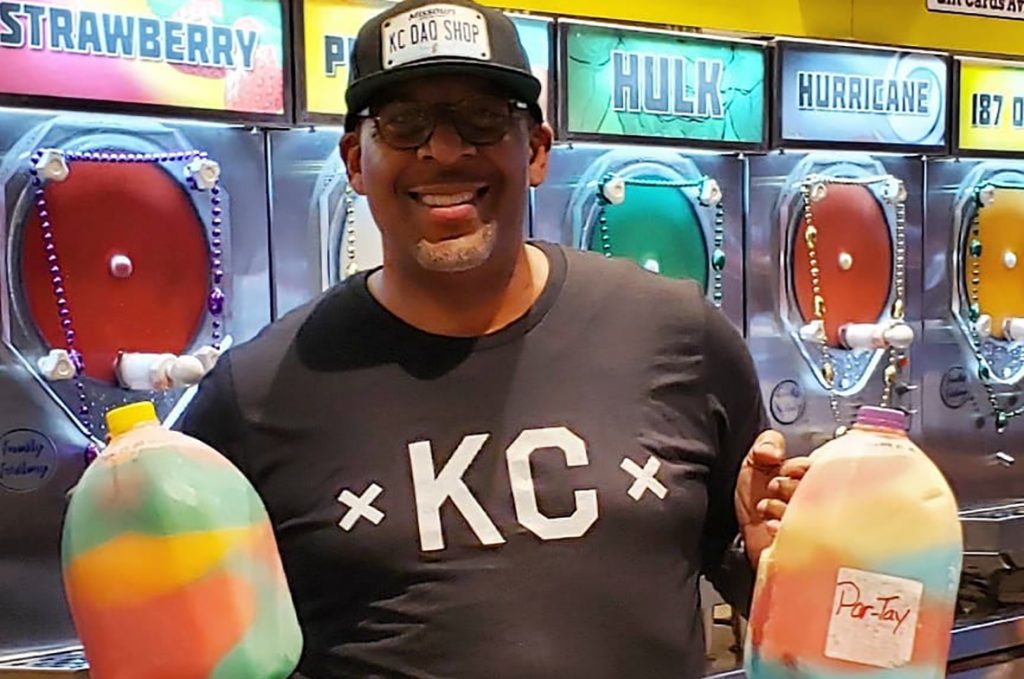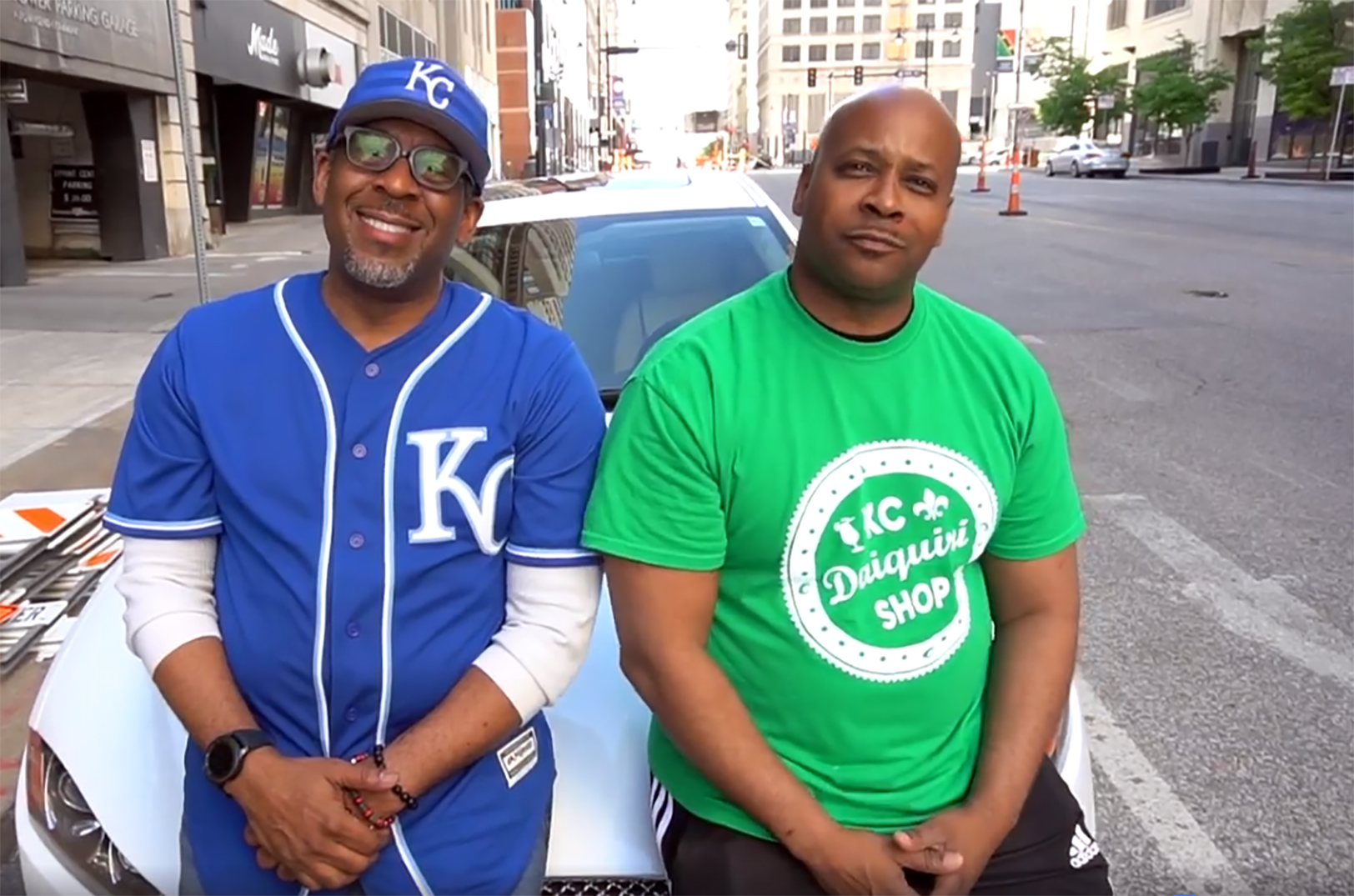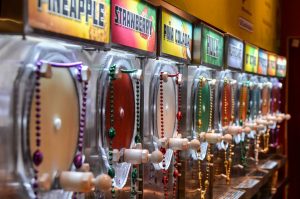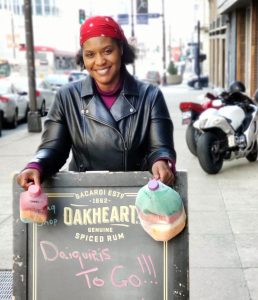If Missouri and Kansas City leaders want to help small businesses recoup lost cash after weeks of shutdown, they’d be wise to take a cue from the Big Easy, said owners of KC Daiquiri Shop.
“The restaurant industry I’m seeing right now is kind of suffering,” explained Calvin Vick, who co-owns the New Orleans-inspired KC Daiquiri Shop alongside friend and business partner Kinley Strickland.
The bar and restaurant saw business come to a halt in the early days of the Coronavirus (COVID-19) pandemic — weeks after celebrating its first anniversary.
The highpoint quickly took a nose dive when the pair had to layoff their staff of more than 20 people, Strickland said.
“Calvin and I, as the business owners, were the only ones working in the business for two weeks straight,” he recalled, noting the clouds parted when Mayor Quinton Lucas issued a temporary order allowing to-go liquor sales in the city — which last week was extended until Dec. 31 by the KCMO city council.
“[At that point] we were able to bring all of our employees back — and now hire new employees because our revenue increased that much based on alcohol,” Strickland said.
Click here to learn more about the menu at KC Daiquiri Shop.
The pair did not disclose an exact number to reflect the financial impact to-go sales have had on KC Daiquiri Shop.
The State of Missouri issued its own order in April, which was set to expire May 15 and later extended until June 15.
Adding options for customers, revenue for KCMO
With Stay at Home orders lifted and phased reopening plans well underway across the region, the daiquiri duo is preparing for another decline in sales, unless to-go liquor sales become permanent when the order expires — much like they are in New Orleans and other cities like Dallas, Texas.
Such a move could ultimately stabilize sales for bars and restaurants across the state and help KC Daiquiri Shop embrace its New Orlean’s roots — while also giving the business every opportunity to reach its second anniversary and beyond, Strickland explained.
“The new normal is not going to be normal,” he said, convinced social distancing and fears of public gathering are here to stay.
“Even once we can open up the dining room, a lot of people are not going to want that. … [We need] to be able to continue drinks to-go, to be able to give them that same incentive to come out, help stimulate the economy, and get the [KC Daiquiri] experience at the same time.”
To make it happen, Strickland and Vick are calling on lawmakers to embrace a new era in retail — in much the same way business owners have been forced to adapt — and are asking them to understand there’s no difference between sales of pre-batched cocktails and traditional liquor store sales, they said.
“If I go into a liquor store and purchase a bottle of wine or a six pack of beer, there’s nothing stopping me from opening it in my car and drinking it,” Strickland said, making the comparison in hopes of helping opponents of to-go liquor sales see he and Vick aren’t asking for something new.
All KC Daiquiri shop drinks come in sealed, tamper-proof containers, he noted.
“There’s several groups that are doing studies right now on how to bring in new small businesses, new entrepreneurs … and this is one thing that would put Kansas City on the same playing field as peer cities,” Strickland said.
The change could ultimately boost the local economy in ways businesses owners can’t begin to imagine, Vick added.
“What we need is for the city and the state to allow restaurants to look at ways to increase revenue and this is one of the ways that we can,” he said.
“We developed a special product. It’s not like you can go to a restaurant or a bar and get it. … People come from St. Joseph, Wichita, Iowa,” Vick said of ways the business has done its part to bring outside cash into Kansas City.
“The city has done a great job [during the pandemic] in terms of providing opportunities for small businesses to [access] the Paycheck Protection Program and other funding sources to help them survive this time,” Strickland added.
“But I would think — going forward with the new normal and the fact that every industry was impacted by this — they’d want some type of funding sources or a resource pool set aside for small businesses … [so] businesses that have been affected by this can tap into it and new entrepreneurs can tap into it.”
Additional revenue from to-go liquor sales could ultimately provide a boost to the city and make support dollars for entrepreneurship and resource programs for business owners — which were greatly reduced before the pandemic — more readily available, he added.
“I think we’re all going to need a boost to sustain our businesses right now and probably for the next several months to years,” Strickland said.

Kinley Strickland, KC Daiquiri Shop
Laws frozen in time for 25 years
A change in the bounds of restaurant liquor sales might have been brought on by the impact of COVID-19, but Vick said it’s long been a goal for KC Daiquiri Shop.
The restaurant received support from Ashley Bland Manlove, state representative for Missouri’s 26th district, earlier this year.
“She introduced a bill this session, but her bill didn’t get out of committee,” Vick explained, noting his wife, Meredith Vick, and colleagues who fought for similar legislation in Texas helped draft the language of the bill.
At the local level, Vick and Strickland said they’ve relied on support from unidentified friends who work at City Hall to help them voice their cause, but have not directly had conversations with or reached out to Kansas City Mayor Quinton Lucas or his office.
“Mayor Lucas is supportive of exploring how to make this liquor to-go opportunity permanent in Kansas City,” Lucas’ office told Startland News in response to the business owners’ ask.
“When we first started this business … one of the first questions that people asked us is, ‘Can we take the drinks to go?’ and unfortunately, the answer would be no and they would be disheartened,” Strickland said of how current laws are stifling the overall experience KC Daiquiri Shop hopes to provide its customers.
“It almost seemed like Kansas City was behind the times,” he said.
As of August 2005, Missouri liquor laws allow customers to leave a restaurant or winery with a single bottle of opened wine if they’ve purchased a meal and the bottle has been securely resealed by the restaurant.
Laws pertaining to the sale of hard liquor and mixed drinks in restaurants appear to have been last updated in August 1995, according to chapter 311.095 of current Missouri statutes.
In order to catch up, Vick is urging city and state leaders to take a closer look at legislation and put themselves in the shoes of struggling business owners.
“Because Missouri is a conservative state, I think people probably still don’t like the idea of being able to have liquor to-go and that’s because the liquor laws have not been changed for years,” he said, adding that without change, more bars and restaurants could leave their closed signs hung permanently.
“It’s a new concept here in the Midwest. … New legislation needs to be passed. We really needed this decades ago,” Vick added.
This story is possible thanks to support from the Ewing Marion Kauffman Foundation, a private, nonpartisan foundation that works together with communities in education and entrepreneurship to create uncommon solutions and empower people to shape their futures and be successful.
For more information, visit www.kauffman.org and connect at www.twitter.com/kauffmanfdn and www.facebook.com/kauffmanfdn












































